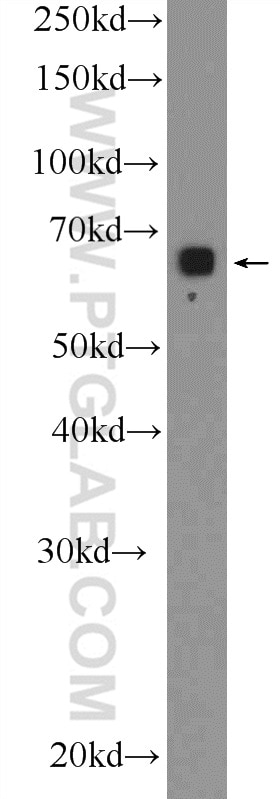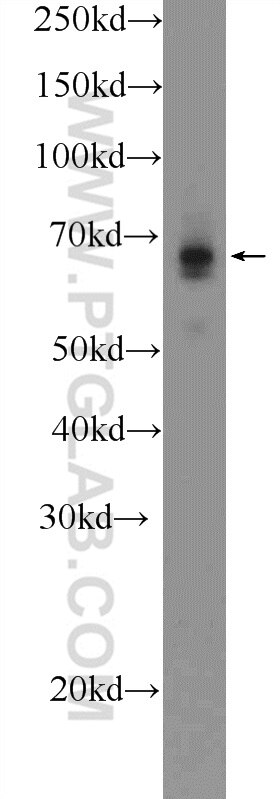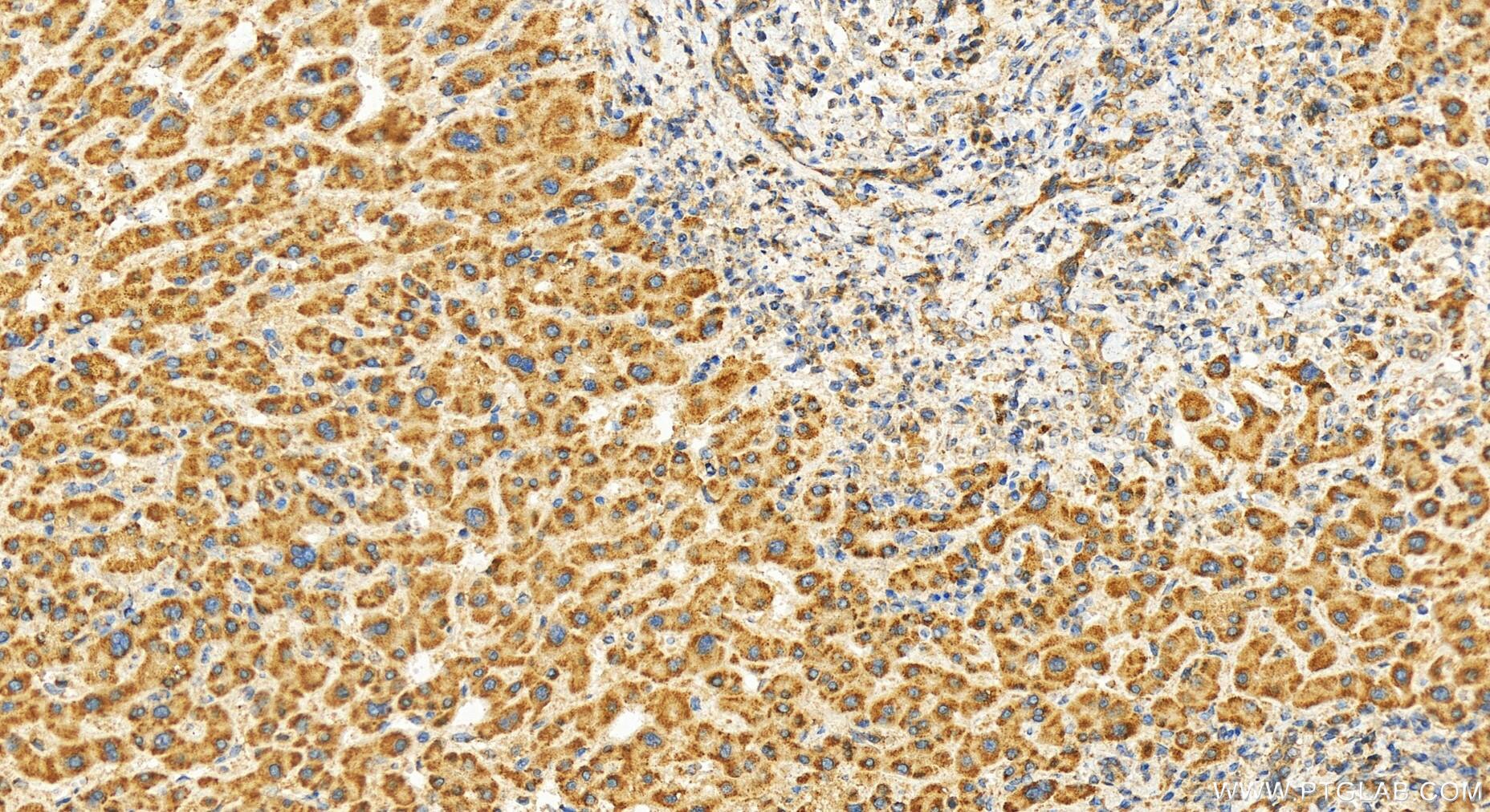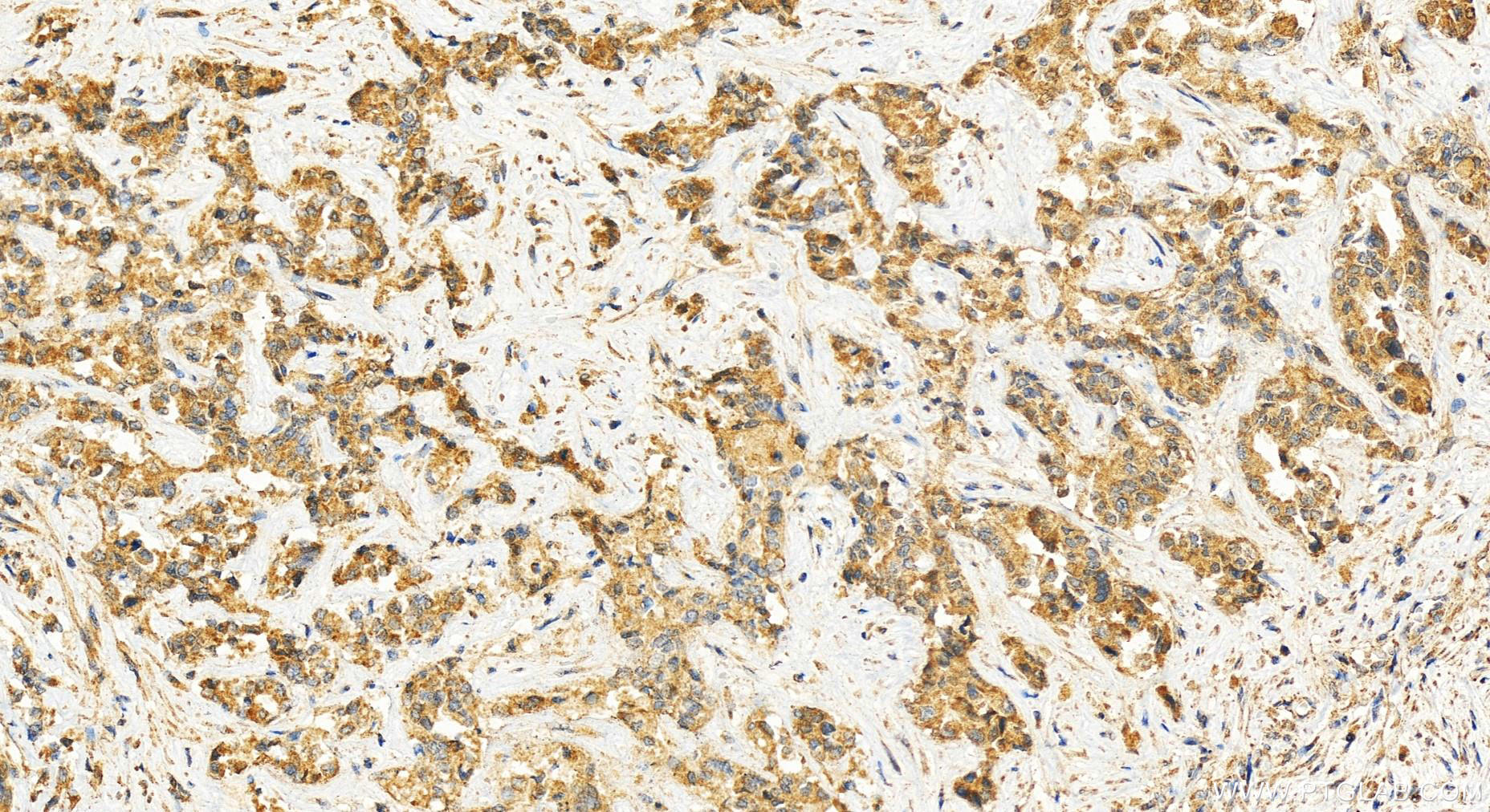GLT25D2 Polyklonaler Antikörper
GLT25D2 Polyklonal Antikörper für WB, IHC, ELISA
Wirt / Isotyp
Kaninchen / IgG
Getestete Reaktivität
human, Maus
Anwendung
WB, IHC, ELISA
Konjugation
Unkonjugiert
Kat-Nr. : 25993-1-AP
Synonyme
Geprüfte Anwendungen
| Erfolgreiche Detektion in WB | SH-SY5Y-Zellen, Neuro-2a-Zellen |
| Erfolgreiche Detektion in IHC | human intrahepatic cholangiocarcinoma tissue Hinweis: Antigendemaskierung mit TE-Puffer pH 9,0 empfohlen. (*) Wahlweise kann die Antigendemaskierung auch mit Citratpuffer pH 6,0 erfolgen. |
Empfohlene Verdünnung
| Anwendung | Verdünnung |
|---|---|
| Western Blot (WB) | WB : 1:500-1:1000 |
| Immunhistochemie (IHC) | IHC : 1:50-1:500 |
| It is recommended that this reagent should be titrated in each testing system to obtain optimal results. | |
| Sample-dependent, check data in validation data gallery | |
Veröffentlichte Anwendungen
| WB | See 1 publications below |
Produktinformation
25993-1-AP bindet in WB, IHC, ELISA GLT25D2 und zeigt Reaktivität mit human, Maus
| Getestete Reaktivität | human, Maus |
| In Publikationen genannte Reaktivität | Maus |
| Wirt / Isotyp | Kaninchen / IgG |
| Klonalität | Polyklonal |
| Typ | Antikörper |
| Immunogen | GLT25D2 fusion protein Ag23360 |
| Vollständiger Name | glycosyltransferase 25 domain containing 2 |
| Beobachtetes Molekulargewicht | 65 kDa |
| GenBank-Zugangsnummer | BC035672 |
| Gene symbol | GLT25D2 |
| Gene ID (NCBI) | 23127 |
| Konjugation | Unkonjugiert |
| Form | Liquid |
| Reinigungsmethode | Antigen-Affinitätsreinigung |
| Lagerungspuffer | PBS with 0.02% sodium azide and 50% glycerol |
| Lagerungsbedingungen | Bei -20°C lagern. Nach dem Versand ein Jahr lang stabil Aliquotieren ist bei -20oC Lagerung nicht notwendig. 20ul Größen enthalten 0,1% BSA. |
Protokolle
| PRODUKTSPEZIFISCHE PROTOKOLLE | |
|---|---|
| WB protocol for GLT25D2 antibody 25993-1-AP | Protokoll herunterladen |
| IHC protocol for GLT25D2 antibody 25993-1-AP | Protokoll herunterladenl |
| STANDARD-PROTOKOLLE | |
|---|---|
| Klicken Sie hier, um unsere Standardprotokolle anzuzeigen |





